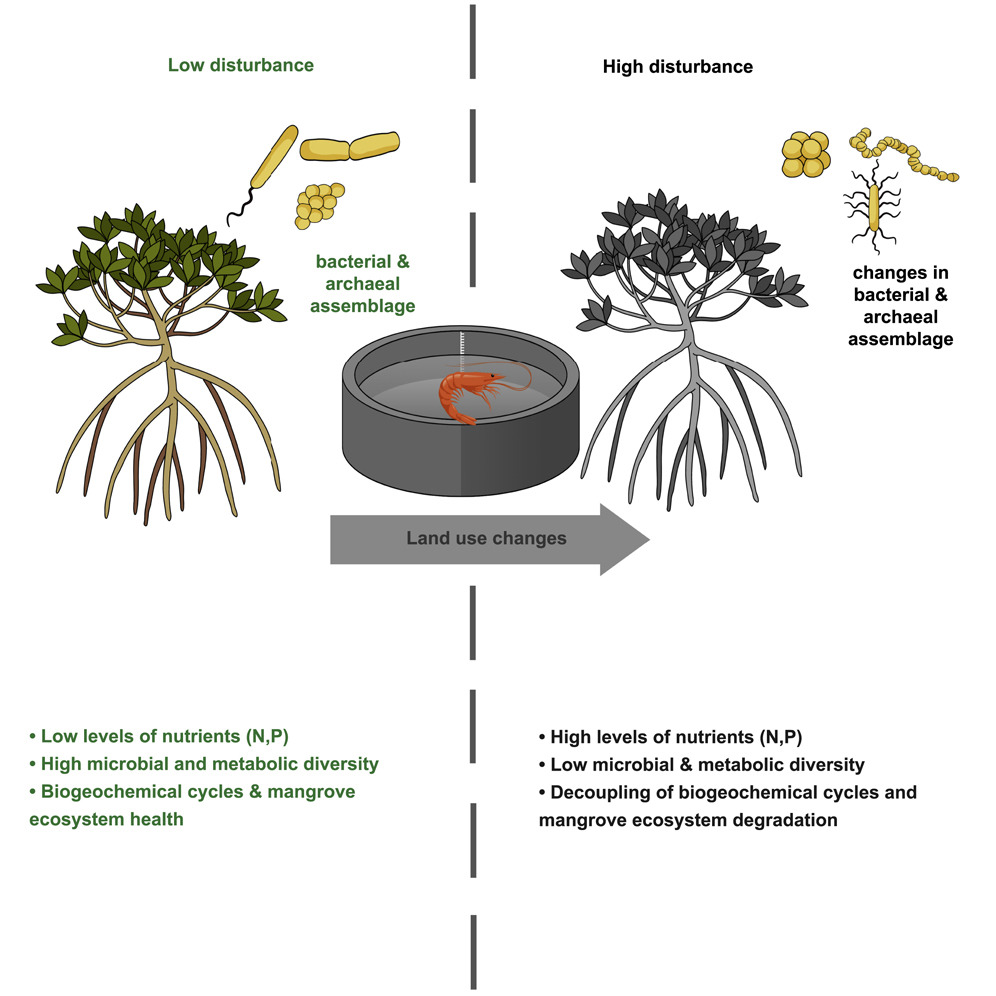Proximity and size of the nearest market (‘market gravity’) have been shown to have strong negative effects on coral reef fish communities that can be mitigated by the establishment of closed areas. However, moray eels are functionally unique predators that are generally not subject to targeted fishing and should therefore not directly be affected by these factors. We used baited remote underwater video systems to investigate associations between morays and anthropogenic, habitat, and ecological factors in the Caribbean region.
Mangrove-dominated estuaries host a diverse microbial assemblage that facilitates nutrient and carbon conversions and could play a vital role in maintaining ecosystem health. In this study, we used 16S rRNA gene analysis, metabolic inference, nutrient concentrations, and δ13C and δ15N isotopes to evaluate the impact of land use change on near-shore biogeochemical cycles and microbial community structures within mangrove-dominated estuaries.
Alzheimer’s Disease: Understanding Biomarkers, Big Data, and Therapy, Volume , 1 January 2021
Alzheimer’s Disease: Understanding Biomarkers, Big Data, and Therapy, Volume , 1 January 2021


